Category: Music business
The dangers of overexposure for artists?
I was talking to a fellow musician recently about balancing “overexposure” and “underexposure” as a performing and/or recording artist. I think it’s a very interesting area of discussion and inevitably one that will provoke all manner of responses. She was commenting how in one area of music, in her opinion the exact same artists seemed to be headlining all the main festivals and other festive events. One the one hand you could reasonably say “Let market forces dictate who is most in demand”, but I think this does raise a genuine issue of overexposure which has its own consequences.
Booking agents and festival promoters understandably want to hire artists that will put bums on seats, and they don’t call it “the music business” for not reason. This is a commercial reality and one of the side effects is that often most of what we see and hear is a repeat of what has already been seen and heard. This commercial reality means that with a few exceptions promoters will take the safe route and book the same individuals. The performers often also take what IMO is the safe route and play familiar material. Again nothing wrong with this, but it doesn’t really factor in a great number of opportunities for anything new or dynamically interesting.
In the UK, you can literally drive from one end of the island to the other in a number of hours. There is a definite limit to the number of festivals and locations you can play at in a fairly small geographical location. This would be quite different in the USA, which is of course a number of “united states” many of whom are very different. If an artist is perceived to be playing almost everywhere, the demand for them is inevitably diminished through “overexposure” If they are almost never seen they run the danger of “underexposure” In the conversation my friend commented that she stopped attending festivals as she rarely saw or heard anything new, so in her opinion it was no longer good value for money. In these times pricing has become a big factor with the cost of travel and accommodation now being quite high in the UK.
Robert Cialdini – The Scarcity principal
A really well respected authority on the subject of persuasion “Robert Cialdini” talks about “the scarcity principle” as one of the six key elements in human behavioral responses.
Principle #6: Scarcity
In fundamental economic theory, scarcity relates to supply and demand. Basically, the less there
is of something, the more valuable it is. The more rare and uncommon a thing, the more people
want it. Familiar examples are frenzies over the latest holiday toy or urban campers waiting
overnight to pounce on the latest iPhone.
o Experiment conducted
In 1985, the Coca-Cola Company made their infamous switch from their traditional formula to
the sweeter formula “New Coke.” Their taste tests indicated that 55% preferred the new Coke
over the old. Most of those tests were blind, but some participants were told which formula was
new and which was the original. Under those conditions, the preference for new Coke increased
6%.
Despite the taste tests, the switch to new Coke triggered incredible backlash against it. Time
magazine later dubbed it “the marketing fiasco of the decade.”
“The company must have looked at the 6% difference between blind and non-blind preferences
and said to themselves ‘Oh, good, this means that when people know that they’re getting
something new, their desire for it will shoot up.’”
“In fact, what that 6% really meant was that when people know what it is they can’t have, their
desire for it will shoot up. Later, when the company replaced the traditional recipe with the new
one, it was the old Coke that people couldn’t have, and it became the favorite.”
Robert Cialdini
Another Farewell Tour?
The famous “farewell tour announcements” work using Chialdini’s principle and are well known strategies to regenerate major audiences. This is a perfect example of the scarcity princile in action. Festivals and events that announce their final trow of the dice, inevitably generate increaed attention from using this principle. Sometimes such acts and events truly have called in a day and sometimes it’s a marketing ploy of course. Numerous artists including The Eagles and Phil Collins and Cream have used this farewell tour tactic to boost ticket sales. However, Cream did wait a respectable 37 years before playing again.
In marketing “difference dictates” For example, if the exact same artists appeared at the same event, then geography and price mostly become the main variable factors. Of course, the artists are only one part of the attraction for some events. Others can be meeting up socially and whether there’s a good supply of beer on tap! Often music festivals leverage the same artists to try to generate interest and sometimes events are cancelled due to lack of headliner availability.
When there’s a lack of scarcity, there’s ultimately increasingly less interest. Despite the sentiment in the song “I wish it could be Christmas every day” if that were true then it would no longer remain a unique once a year event. Every day would essentially be the same as every other day, so Christmas would no longer stand out as a special day for many.
Playing only for exposure?
Another regular topic among artists is the question of playing only for exposure also known as playing for free. The term “for free” many means that there is no financial exchange, but there may be many other benefits that are as or more valuable. Such benefits include being able to network during the event, photographic opportunities and getting good live video. That said any artist wanting to earn a living from music needs to generate predictable income. The key word here is “predictable” A lack of predictability in income streams can create all manner of problems. Some artists and promoters are well intentioned but delusional when it comes to making basic business decisions and this can cause them major long-term problems.
Getting useful exposure and “playing the long game”
With my own band “The Small Change Diaries” we received our first overseas festival invitation on the basis of reputation and online presence. We have since had other overseas enquiries and I have made sure we don’t appear as a what many may think of as typical ukulele band as that’s not really our target audience. We also play 100% original music which is not a safe bet in terms of audience reactions. Martin Simpson paid me the highest compliment by saying “You really don’t sound like anyone else”
With the band, I make sure that everything we put out was of good quality and there were no shaky camera videos taken on IPhones! Personally, I would never want to reply only on music for an income and professional artists I know comment that this is not exactly an easy life. The balance again is maintaining some exposure in the public domain but not oversaturating the market so you appear everywhere and lose impact. Once again Robert Cialdini’s observations are worth bearing in mind. This is IMO all about “playing the long game” and that means careful investment of time and money. Inevitably there are major lessons along the way of course.
Online video
Another challenge is the increasing amount of material posted online on video platforms, especially YouTube. If you put everything online members of the public can think “I’ve seen that set” and not bother to see you play live. Kate Bush pleaded with her audience not to video her string of shows to maintain the scarcity element and of course one fan couldn’t resist. Artists who post everything online also can create problems for themselves in terms of overexposure.
Final thoughts and a counter example
Interestingly there is a counter example to all of this in that an increasing number of popular artists make EVERY SHOW available to their fans. You can literally buy every show of Springsteen’s “The River” on CD, high definition audio and mp3, literally hundreds of hours of listening. Artists like Nick Cave have technology that in some cases allows you to have a recording of the show directly after you have attended it. These are exceptions to “the scarcity principle”
Of course, the other extreme is underexposure which is equally problematic, but that’s the subject for another blog
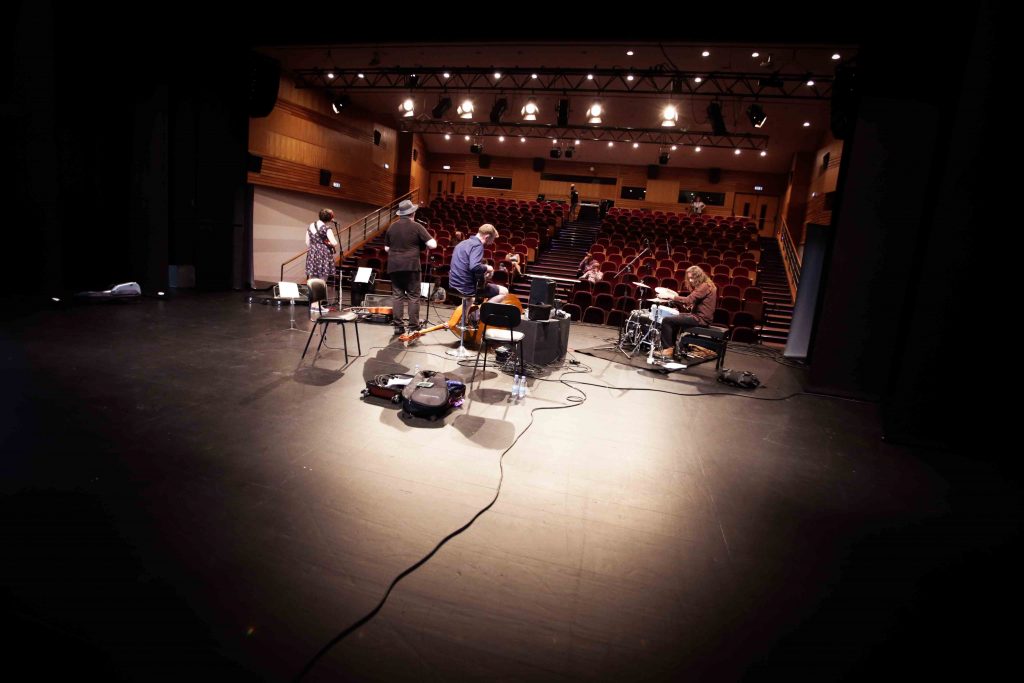
Setting up for the main stage at The Lagoa Guitar Festival 2016
Finally this is not a new topic and despite some folks dismissing the whole subject out of hand, its been written about extensively from many angles and perspectives. Thanks for all the private messages about this and those who have contributed in a mature way to the discussion
Stand for something or stand for nothing?
I had a long conversation recently with a very established artist where we talked about “artist positioning” and artist identity. He pointed out that those artists who have created a body of work that has stood the test of time, stuck to their guns in maintaining a very definite musical stance, while at the same time evolving their own material. There are many examples of such individuals, including David Bowie, Neil Young, Bob Dylan among many others. When Bowie released “Low” there was some surprise as to how an artist who created “Ziggy Stardust” could then release an album that was 50% instrumental! Of course Bowie was a brilliant composer as well as a performer and was often well ahead of the curve. Decades on its appreciated as a classic. Hendrix had the same experience with Electric Ladyland, another of my all time favorites. Of course when Jimi touted “Hey Joe” most record companies were not interested…
Similarly Neil Young drove his record company crazy with some of his releases causing Geffen Records to suggest his music was “noncommercial” Dylan has always massively inspired and frustrated me in his choice of releases. At his best, he released “Blood on the Tracks” “Oh Mercy” and “Time Out of Mind” but the last two had the magic Daniel Lanois ingredient that worked so brilliantly with Emmylou Harris’s Wrecking Ball, another superb album. Emmylou received a lot of grief from people who preferred “the traditional country sound” but I applaud that she stuck to her guns and didn’t simply pander to what people expected. The best artists in my view have the metal to challenge an audience and create something new. This is NOT the safe option and it’s far easier to just roll out a familiar tune that will instantly be recognizable to an audience. Yes, there’s absolutely a place for that, but please lets also have music that takes people to new places and is gimmick opefully free. Without new music we are left with an endless recycle of what has gone before. Without artists taking risks and sticking to their gugs many of the classic albums would never have been made.
I therefore continue to have a massive respect for artists that maintain a consistent position, even if I’m not a fan of their actual music. This is one of the reasons i prefer original material as by its nature such music always brings something brand new to the table. Its also clear to me that a lot of the best music requires cooperation with like minds. Even though Dylan and Young are known as solo artists, without “The Band” and “Crazy Horse” a lot of the best music would never have manifested.
“With Crazy Horse, it’s all one big, growing, smoldering sound, and I’m part of it. It’s like gliding, or some sort of natural surfing”
Neil Young
There are many other examples of this including “The Talking Heads” and although “The Tom Tom Club” created many great tracks. the full Talking Heads ensemble were quite extraordinary. Long term collaborations are rare as its like a marriage, there needs to be some give and take. Years ago I was in a band called “The Guest List” and out of the four of us, one member always used to freely proclaim being a lazy person, which at least was an accurate description! Ultimately we parted ways as he was being carried by the rest of the band and it wasn’t even remotely an equal collaboration. These days I’m very careful to ensure that I work with people who have a shared creative vision and who are prepared to put in the actual work needed.
I have come to respect folks “who stand for something” rather that those who don’t hold a particular view and try to be all things to all people! I’m not a fan of this as in trying to be “all things to everyone” IMO you end up being “no thing to anyone”. Far better in my biased opinion to maintain a stance that you remain true to. The artists I respect the most have always done this and in doing so they have received all manner of negative comments. This weeks is the 50th anniversary of Sergeant Pepper, a classic Beatles album which set the world alight all those decades ago. Most of the greatest music is ahead of the curve when released and its only later that it gets fully recognised. Of course ultimately its a personal choice and I fully admit that my taste is not the same as the masses!
Ultimately the best art and music comes from cooperation and collaborations, with essential focus and stamina. I’m lucky to increasingly know a bunch of folks who have a great love of music, as well as terrific skills.
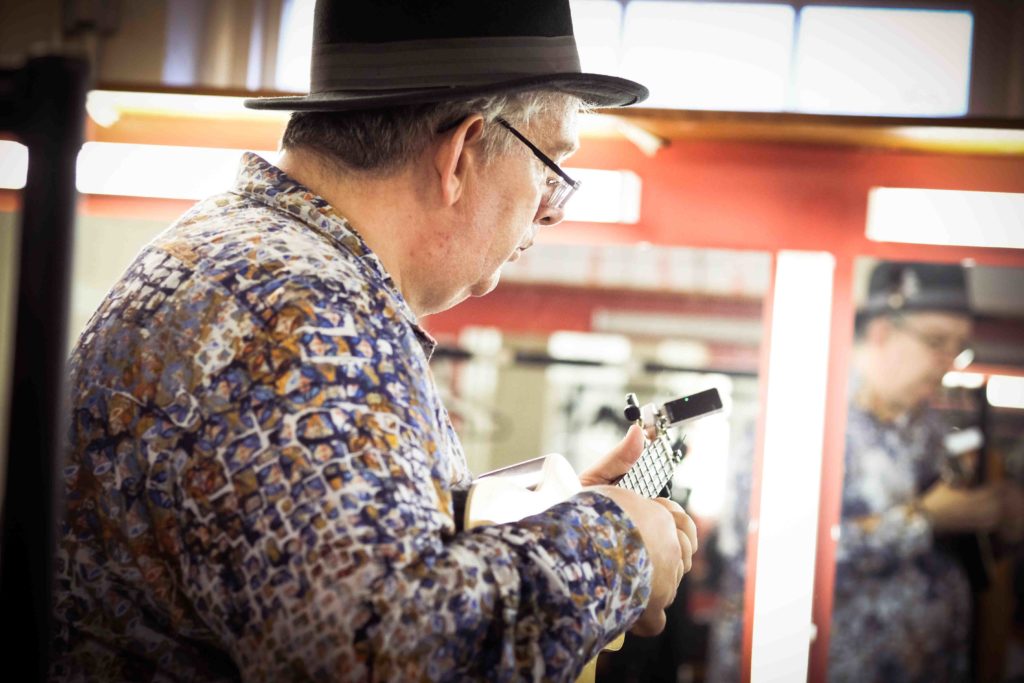
Binge drinking & substance abuse for musicians
In my other life as “the other Nick” I work with individuals with behavioral issues as well as teaching groups about addictions and compulsions worldwide, especially in Japan. I have been involved in this work for almost two decades and seen literally thousands of clients in private practice. A significant number of these clinets are musicians who have binge drinking problems and substance abuse issues.
There are increasing examples of creative types experiencing excessive drinking or substance abuse. Of course this is not news, but I am noticing a definite upward trend. I don’t take a morally righteous view on what people choose to do personally and suspect that much of the very best music was created while performers were “in altered states” My own preferred artists include Nick Cave, Tom Waits, Steve Earl and David Bowie, all of who were “chemically assisted” in their creative work. That said there can be all manner of repercussions from such behaviour and in extreme cases whole careers get damaged or even destroyed. Interestingly both Bowie and Waits packed in all alcohol and drugs with Tom abstaining for the last two decades.
Digital thinking issues and mental health issues
The difficulty with excessive drinking and substance abuse is that the world becomes very black and white or as we say in the business “digital” I know of some artists who after a gig immediately drink to excess like there’s no tomorrow, barely able to even stand up. Again each person can choose what they want, but such repeated behaviours usually have all manner of problematic consequences. Usually concentration is affected, which leads to poor decision making and time management. Typically in this black and white existence individuals become depressed for long periods of time, and do more of the behaviour to try and escape this issue. Many touring artists have tough schedules and turn to “additional help” to cope. When this reaches a certain level, problems often ensue and poor mental health is top of the list. My own theory is that conditions like Altzeimers are hugely influenced by longterm over stimulation of the nervous system through alcohol and substance abuse. Now people are generally living longer, this is becomeing more evident.
Bruce Springsteen in his audio book “Born to Run” talks about staying clear of such activities, but still struggled with depression. The nature of being immersed in creative work often means that artists can stream ideas and creativity in an unfiltered manner. To do this well, it requires a lack of definition which in this context works well. However in other areas of life this lack of definition can create all manner of problems and result in literally car crash behaviour. People with these habits tend to find it difficult to get motivated, have poor time keeping and struggle to maintain relationships. They will often do the minimum workk needed in a situation and don’t have the stamina and focus for success in long term creative projects.
If I’m starting to sound like a killjoy, lets remind ourselves that I’m not talking about bringing back Prohibition, but rather extremes of behavior which affect the creativity and ability of an artist. Long term abuse leads to all sorts of mental health issues which is no surprise with the nervous system being massively overstimulated far too often. I talked to one world class musician who commented on the challenges of working with an original band member who developed a cocaine habit which almost split the band. Often what starts off as “casual interest” becomes a regular habit and the person doesn’t realise how much effect this is having. David Crosby wrote about this in his excellent autobiography, but managed to survive and continue to make great music.
Traditional approaches for help
There are many “traditional” approaches for help with these issues, but in my experience they focus on the wrong aspects of the behavior. Simply talking about the problem often is ineffective or worse still reminds the person of how much the problem impacts their life through “recollections” of experience, rather than empowering them to think, feel and experience something different. General hypnotherapy also is IMO pretty ineffective unless you can really connect with the person in a meaningful way where they can discover how better to run their own brain. I respect approaches like the 12 step process, but I do have issues with some of the thinking that makes the sense of identity linked to the behavior. I have seen clients who have had scores of therapuetic sessions “talking about the issue” but with no remote sign of effective change.
Long term effects
Most people I have had as clients or have observed experience similar long term effects. Often the problem behaviour is reinforced by social groups. Group X may all meet for an activity and then head off to the pub. Nothing wrong with this at all of course, until this starts to become increasingly excessive. The group behaviour leads to increasingly greater excessive drinking and this becomes a daily occurance with a real acceleration at weekends, which usually stretch from two to three days!
For musicians this often means problems to musical commitments as folks literally have to factor in “recovery time” and inevitably become far less productive. Precision in playing instruents starts to suffer and the creative output usually slows down. Of course such folks will usually deny this is happening and in a band context it can lead to all manner of fractures. Alcohol also aids depression and results in quite severe mood swings which are not great for better decision making crucial if you want to achieve any kind of creative success.
Final Thoughts for now
As I said at the start of this blog, its all about the degree of the behaviour and the context. I suspect much of the music I love would not have been created without “assistance” That said the world has lost many brilliant musicians through excessive alcohol and/or substance abuse. Many artsists go though a phase of this behaviour and then realise that if they want to create a lasting body of work they need to review such excesses. In these tougher economic times even the most creative artists need to have real focus and stamina as well as talent. This mostly means having the clearest head for decision making and the well being that will allow them to create the best possible work.
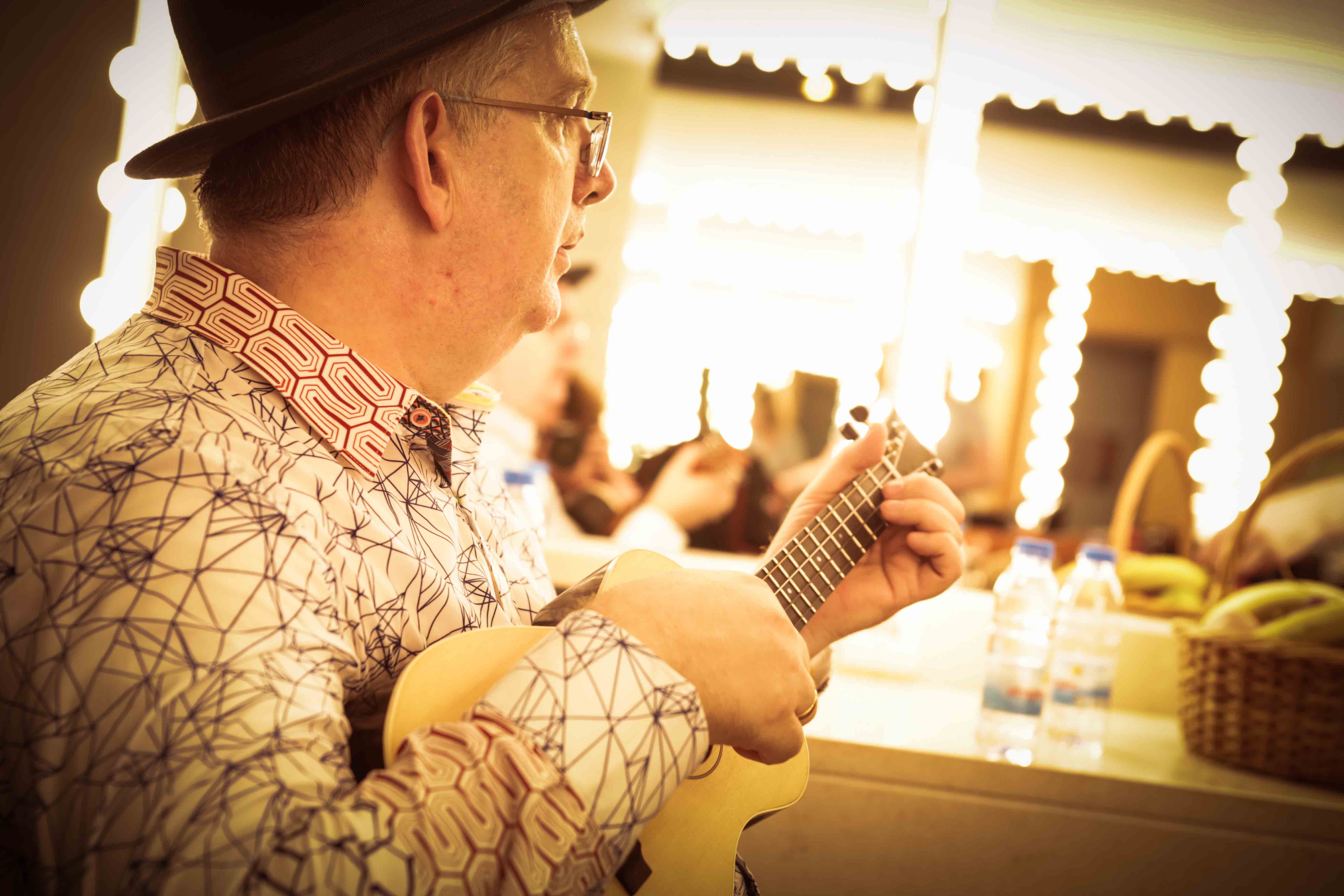
Singer inspirations
I was asked recently by a fellow musician, who my inspirations are as singers. I have talked a lot in the past about songwriter inspirations, but singers are slightly different.
Here are some examples that have been a big influence on my own work
As you can see and hear, these are very different artists, but they all have a unique style and write great lyrics. I’m a massive fan of original music and all four artists have in my view done a great deal to push the boundaries in a world that’s too full of “cookie cutter” music.
Aside from Tom Waits I have seen the other artists live and they have never failed to disappoint. The smartest and best music is usually ahead of the curve in terms of popular opinion. Other singer songwriters I love include Stevie Wonder, John Hiatt, Ani Difranco, Daryl Hall, Joni Mitchell, Steve Earle, Nick Lowe, Bob Dylan among others. All have a definite point of view and regularly inspire as well as frustrate me with their output!
If you are going to do cover versions as well as original songs, then it doesn’t get much better than Daryl Hall and “Daryl’s House” is essential viewing/listening for any singer
Interview with Phil Doleman
Transcript of Nick Cody interview with Phil Doleman
nick cody: Hi, this is Nick, and I’m here with the mighty Phil Doleman
Phil Doleman: Hello, nice to see you, Nick.
nick cody: Good to see you, Phil. Down in Belper. I thought, seeing as I have the opportunity to talk to Phil, I’d talk to him about the very many things that he’s involved in, starting off with the new book, which has been out for how long?
Phil Doleman: It was released at the end of August.
nick cody: Okay.
Phil Doleman: How Music Works On The Ukulele, yeah.
nick cody: What inspired you to write How Music Works On The Ukulele?
Phil Doleman: Well, at workshops lots of people were asking me, “Can you recommend a music theory book? Because I want to learn a bit more about this theory, but I don’t want to have to learn to play the piano or read music.” And I couldn’t recommend anything. There was just nothing that talked about theory and how all this stuff worked together, but was mainly aimed at chords, which is what ukulele players are playing most of the time, and didn’t involve having to learn all of the sort O level music stuff. That’s where it came from really, more of an accessible version of the music theory.
nick cody: What sort of interest have you had since you’ve launched it?
Phil Doleman: It’s gone crazy. I think I’ve sold almost 700 copies with no advertising, and the only other places it’s been available is through World Of Uke shop, the rest of it has sold direct from me. No budget, no nothing. Just Facebook posts and that’s it, yeah.
nick cody: Well, clearly people are enthused.
Phil Doleman: Yeah.
nick cody: I know that with the uke, we’ve talked a lot about this, a lot of the time people have this idea that it’s an easy instrument to play.
Phil Doleman: Yeah, well, the funny thing about playing an instrument is, there’s two aspects to it. There’s the physical thing of playing an instrument and then there’s music. Music is the same whether you’re playing a tenor guitar or a banjo or a ukulele or whatever. Music is the same. The rest of it is taking what’s in your brain or what you hear, and turning it into music via whatever medium you choose, whatever instrument you choose. Yeah, it’s pretty easy to pick up a uke and show someone a couple of chords, and unlike the violin, if I strum a C chord or anyone I’ve just shown strums a C chord, they’ll sound like anybody else strumming a C chord. Whereas, a violin, you go through that screechy phase of producing a tone. Beyond that, it’s just as hard to play music on any instrument, because it’s much more about music than it is about the instrument. People know me as a ukulele player, but they’ve just seen me playing … And you as a ukulele player and you’re playing a tenor guitar and I’m playing a tenor banjo.
nick cody: I’ll be lynched. He’s moved over to the Dark Side.
Phil Doleman: But these are not tuned like ukuleles, these are completely different instruments. But if you understand how notes work together to make chords and how chords work together to make song it’s actually quite easy to get to grips with another instrument and fit those same notes together in the same way. If you’ve got an understand of how music works. That’s the title!
nick cody: So for people watching this, and they’ve got that ukulele, they’re happily playing their certain number of cords and may be part of a ukulele club, but they want to progress and develop. What would your core advice be for people like that?
Phil Doleman: I think you’ve got to develop your ear, and I think people concentrate far too much on this aspect and this aspect. So you’ve got develop your ear, and the only way to do that is to listen a lot, and really listen, not just have music on, but listen to it and think to yourself while listening, “What’s happening? Can I do that? Or if I’m playing that song already, do I do it like that? Or is there something different from what I’m hearing to what I’m playing?”
That’s how you develop the ability to jam with other people. Like, we were just playing together then, I mean, that’s not something we’ve played together before other than just quickly going, “How does it go?”
nick cody: About an hour ago.
Phil Doleman: Yeah, it’s that. So, it’s the idea of listening, and hearing it in your head, and then being able to… I think the easiest way to develop your ear is to sing.
nick cody: Yeah.
Phil Doleman: And a lot of people who play are a bit frightened of singing, because maybe they’ve been told that they can’t sing, or they’ve just never done it with any, it takes a certain amount of confidence. But if you can hear something, and then sing it, then it’s in there, it’s got as far as there and this apparatus, we’ve already had a lifetime to learn how to use to turn something we can hear there to something here. So, that’s quite easy.
The hard bit is turning something that you hear there to something coming out to your instrument.
nick cody: Yeah.
Phil Doleman: But if you can sing it, you’ve done the first bit, which is actually quite hard I think. So sing!
nick cody: I think there’s a lot of truth to that. As somebody whose previously was not a singer, and I’ve had my first ukulele lesson years ago with my dear friend and co-performer, Small Change Diaries Jessica, who said in the first lesson, “Let’s sing a song!” And I went, “WOO!” In shock.
But I have to say it absolutely does something in the brain to pay more attention, without fail.
Phil Doleman: And if you think about all of the jazz greats, who are playing instruments that they don’t have to blow, will come along, and sing along, with all of you. If you listen Thelonious Monk play the piano, he’s singing and humming to himself as he’s doing it. If you listen to people like Jim Mullen on guitar or people like that, even if they’re not singing out loud, you kind of see their lips moving a little bit, and that’s because they’re not going, “Oh, that sounded nice.” They’re actually going, “I want to make this sound,” and singing helps to get that idea out of their brain and out into the world.
And you would see other people like George Benson who will play mind-blowing guitar solos and sing them at the same time.
nick cody: Yeah.
Phil Doleman: And you know then that he is completely in control of his instrument, because what’s coming out of here is matching what’s coming out of here.
nick cody: Yeah.
Phil Doleman: It’s all about listening and that’s what music is. People forget that quite often. It’s just vibrations in the air and how you create them is completely up to you, and what instrument you use.
nick cody: I hear you’re back playing with Ian.
Phil Doleman: Absolutely, yes! [crosstalk 00:07:30]
nick cody: Duo gigs all over from what I’ve been seeing.
Phil Doleman: And it’s such great fun to do it again, because most people know Ian as uke player, but for a long time before that he was a guitarist and quite a busy, successful guitarist, and it’s so great to have… we’ve always had that kind of chemistry where we just play and kind of lock in together, and that is something that is actually quite hard to learn. But if you find someone it works with it’s great, and it’s lovely for me because Ian’s just, he is my entire band. So he’s my drummer and my bass player and my guitarist all rolled into one. Which means I can relax, and I can just do stuff over the top of that, and that Ian’s always going to back me up all the time on that. And, he’s also a harmony singer, so it’s lovely to have a little bit of vocal harmony come in, and just lift the vocals a little bit. But yeah, we’re having great fun with it.
And the stuff we play now, it’s so loose that we don’t have to play the same thing every time. We can surprise each other, we can throw little things in as and when we feel like it. Change the tempo of the song, change the feel of the song, and just go with it, which is a lovely thing to be able to do.
nick cody: Well, I didn’t know him so much, I knew him sort of as playing with you, because I saw him play Good Enough last year.
Phil Doleman: Yeah.
nick cody: But I saw some clips on YouTube, and I was like, “Oh my God!” He can play any Jazz stuff. [crosstalk 00:08:54]
Phil Doleman: Oh, absolutely.
nick cody: He can sing! So I was really, not that I was underestimating Ian if you’re watching this, I’m not underestimating you, but I thought, “Oh my God!” I mean, he is solid, solid performer.
Phil Doleman: Oh absolutely, he’s one of those guys. It’s just like we were talking about there. An amazing ear. So, when it comes to rehearsal time for a new song, we don’t ever go through the whole, “Let’s write this, let’s work it out.” It’s like, “What key is it in? Play it.” By the time we’ve around it once, he’s there. By the time we’ve gone around four or five times, he’s got so really some really nice little bass runs or little interesting bits. And, as he will tell anybody, what takes, then it takes six weeks before we can perform it, because I can’t remember words. But if there were no words to remember we could do a song one day and perform the next. And that’s Ian’s trick whether he plays the guitar or the uke, an incredible good ear. I think that’s something that a lot of players, it never occurs to them to think how to listen to stuff, which is important.
nick cody: And I hear you are also doing stuff overseas now as well.
Phil Doleman: Yes, I was lucky enough to go to the West Coast Ukulele Retreat last year, I’m going back again this year. It’s an amazing experience, there’s like anything I’ve been to in the UK. It’s not a festival, it’s truly a retreat for a relatively small number of people, around about a 100 people.
nick cody: Okay.
Phil Doleman: Who stay there for several days, this year there’s actually an extra day for people that want it. So it would be from Tuesday to Sunday, and it’s full time table. You get up in the morning share your meals with all the students. You have breakfast and then you go and teach, and you coffee and then you teach, and then you have lunch together and then you teach, and then by the time you get to the evening they’ll be some kind of evening event, but you will be… if you’re not… not so much performing, more facilitating other people performing. So might in the house band for other people, or you might be working on some way of backing up people to encourage them to get up to see sing songs you’ve worked with them during the day.
One things we all had is all the chiefs just have a band, and you teach the band that song.
nick cody: Oh wow.
Phil Doleman: An arrangement, and you train them. But then, they go and perform it in the evening. It’s very, very hard work, but it’s really rewarding and it’s unlike anything I’ve done in the UK.
nick cody: Wow.
Phil Doleman: Plus, you get to the West Coast of America and go to San Francisco.
nick cody: Not to shabby!
Phil Doleman: No! It’s a nice place to go, it’s gorgeous!
nick cody: So, if people want to find out about what’s happening in the world of Phil Doleman what’s the best way for them to do that.
Phil Doleman: The website is phildoleman.co.uk, all one word, and you find me on Facebook, I’ve my own page but I’ve also got Phil Doleman music page on Facebook. And, yes, all of those have all the gig lists and the workshops and things like that, and also if come along to a festival, next one is going to Grand Northern Ukulele Festival at the beginning at May. And I’m at a lot of festivals, and just come and say hello, and accost at a festival somewhere and take it from there.
nick cody: Well, thank you so much for chatting to us.
Phil Doleman: Always a pleasure mate, always a pleasure.
nick cody: Cheers.
Phil Doleman: Cheers.
Developing business skills for artists
The importance of working on the business and working “in the business”
 I was reflecting today on the importance and difference of “working on the business” and “working in the business” Many artists who are self employed can miss the real need to “work on the business” and learn about developing business skills which will be a key part of any overall long term success. Often people can be so busy working in the business they don’t allocate time to work on the business. You can always spot such folks as they well always cry “I don’t have time for X and Y” and this is usually because they have not planned ahead and factored in how to balance time and money. Many artists can be extremely busy, but financially impoverished and emotionally exhausted as they have yet to take a step back and look at the full consequences of their actions
I was reflecting today on the importance and difference of “working on the business” and “working in the business” Many artists who are self employed can miss the real need to “work on the business” and learn about developing business skills which will be a key part of any overall long term success. Often people can be so busy working in the business they don’t allocate time to work on the business. You can always spot such folks as they well always cry “I don’t have time for X and Y” and this is usually because they have not planned ahead and factored in how to balance time and money. Many artists can be extremely busy, but financially impoverished and emotionally exhausted as they have yet to take a step back and look at the full consequences of their actions
Of course its everyone’s right to dedicate as little or as much time they want to do in both of these aspects. In my other life (aside from music), I have started up and run a couple of multi million pound concerns and this has been a spectacular learning curve. I made some massive errors, which have led me to think carefully about how proceed with any project. This is not about becoming the next Steve Jobs, but rather paying attention to the simple factors that will make things easier and more fun.
Personal Experience with my own band The Small Change Diaries
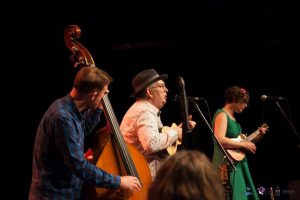 This current band has now been going for two and a half years. Its been a lot of work and a massive learning curve in strategic thinking. Its also for the most part been a great deal of fun and at times a genuine baptism of fire, which is IMO no bad thing. When we had our first BBC Radio play by Alan Raw on BBC Introducing he commented “This band is everywhere, on Facebook, on Twitter, online and on bandcamp” This was no coincidence, when deciding on the name of the band I also ensured that the online presence and social media were also fully in place. Whether we like it or not, social media is now key to marketing. With the advent of YouTube and Facebook, there has never been a better time for artists to connect directly with the public. I spend a significant time each week ensuring that these mediums are up to date. People can bemoan the amount of time needed for social media marketing, but our biggest gig to date came from a promoter noticing the band’s online presence…
This current band has now been going for two and a half years. Its been a lot of work and a massive learning curve in strategic thinking. Its also for the most part been a great deal of fun and at times a genuine baptism of fire, which is IMO no bad thing. When we had our first BBC Radio play by Alan Raw on BBC Introducing he commented “This band is everywhere, on Facebook, on Twitter, online and on bandcamp” This was no coincidence, when deciding on the name of the band I also ensured that the online presence and social media were also fully in place. Whether we like it or not, social media is now key to marketing. With the advent of YouTube and Facebook, there has never been a better time for artists to connect directly with the public. I spend a significant time each week ensuring that these mediums are up to date. People can bemoan the amount of time needed for social media marketing, but our biggest gig to date came from a promoter noticing the band’s online presence…
Common Mistakes people make
My business and marketing background has taught me the need to importance of investing both time and money in making any enterprise a success. Of course there is no “right way” to do this, but here are a few of my observations of some common mistakes that in my view can limit the possibilities of success.
Online Presence – consistency and congruency
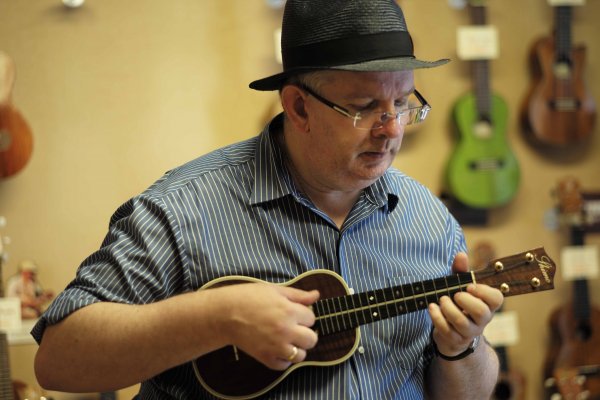 Whether we like it or not, we are now all in the computer and internet era. If you avoid spending time using these tools and mediums you are with respect pretty optimistic (many might say delusional) about marketing your services. I have often quoted the old adage “You never get a second chance to make a first impression” This is especially true with an online presence.
Whether we like it or not, we are now all in the computer and internet era. If you avoid spending time using these tools and mediums you are with respect pretty optimistic (many might say delusional) about marketing your services. I have often quoted the old adage “You never get a second chance to make a first impression” This is especially true with an online presence.
Your website is like a shop front out into the universe. Its therefore worth making sure that you create the best possible impression and all information is up to date. Amazingly some folks forget to update courses, dates and news which shows a lack of attention to working on the business. The site also needs to be easy to navigate, Google mobile friendly and search engine friendly. Like a store shop front to get the best results you need to ensure that the site is attractive and easy to navigate. Also its useful to remember that Google searches on content, so regular blogs and article are essential if you want to maintain customer attention. Its also important to have a congruent message. Its also crucial to have professional photos and to invest in this. Anyone can “take a pic” BUT a pic is not a photo and there’s a good reason why all smart businesses and artists invest in professional photographers. You don’t need to go crazy, just have a few great artist photos that literally show you in the best light.
I saw one artist site that was wonderfully visual with useful investments in professional photos, BUT the main images on the site were of the artist posing with a glass of wine rather than an instrument, which looked rather odd to say the least. If you are clueless about creating a website FIND SOMEBODY WITH SKILLS TO DO THIS. The internet is littered with really poor websites that are a terrible advert for the artist. Sometimes people make the most basic of mistakes, because they don’t know any better. You wouldn’t open a shop on the high street with a terrible window display would you? Well consider your website in the same way, if you want to attract interest.
Balancing the books and time management
 Deciding how to invest time and money and when to do so, is a real skill. I blogged recently on a colleague who was seeking music tuition and was finding it almost impossible to get a tutor to reply to his requests for help. These tougher economic mean that we all need to work smarter and harder to maintain viability. Note I say “viability” rather than “success” as its pretty tough out there at present. this means making sure that you can cost your time properly so that all the key tasks receive an appropriate amount of attention.
Deciding how to invest time and money and when to do so, is a real skill. I blogged recently on a colleague who was seeking music tuition and was finding it almost impossible to get a tutor to reply to his requests for help. These tougher economic mean that we all need to work smarter and harder to maintain viability. Note I say “viability” rather than “success” as its pretty tough out there at present. this means making sure that you can cost your time properly so that all the key tasks receive an appropriate amount of attention.
Pricing services and products will filter the kind of clients you will attract. How you cost your time is crucial. My advice is always to be mindful of managing time to best effect. Its easy to get lost in time consuming activities, which would either be worth delegating or not doing at all. The idea that the lowest price is always the most attractive option is flawed thinking. There’s a fundamental difference between price and cost. The price is the financial element, the cost is what is involved in the overall trade. For example an artist may get a live opportunity that seems attractive until they factor in the amount of time travelling and other considerations. Sometimes the trade is worthwhile even if you are doing this at a financial loss BUT its not viable to do everything at break even or a financial loss. That is a recipe for disaster.
Working with like minds – “Hanging with the smart brains”
The first band I was involved in was “The Guest List”, almost twenty years ago. There were four of us. Myself and the singer attended all the rehearsals on time and spent a great deal of time planning the band’s material. the drummer and bass player always dragged their feet and this made the whole endeavor really hard work! In the end I split the band as I realized I was doing the majority of the work and two of the band seemed to have very little appreciation of the amount of work the two of us were putting in. Yes everyone has different strengths, but there needs to be an overall collective contribution to the project. Since then I have realised that sometimes you have to change personal lineups for a band to move forward in a productive and creative manner.
The dynamics of being in a band is different to being a solo artist. With bands there is always a dynamic of different individuals coming together and inevitably occasionally falling apart. Its similar to a business in that the overall success requires cooperation and working for overall project rather than any personal needs. Just as in business, different members of the band offer different perspectives and often the best creativity comes from discussion and debate. Its also smart to network and I find it highly useful to “hang with the smart brains” and have a number of folks I can productively chat to. If you become too insular in your thinking, there is a real danger that you will make more mistakes than if you interact with others. This is a two way trade and I am more than happy to assist others when asked.
Investing in the best gear you can afford
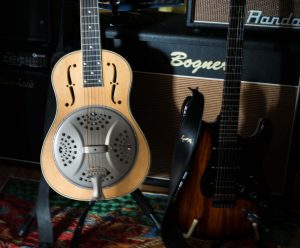 There’s an old saying “Buy cheap, buy twice” I’m mindful that everyone will have different budgetary constraints, but in my experience its always smart to get the best gear you can afford. I have talked about the difference between musical instruments and “instrument shaped objects” Yes you can but a ukulele for thirty quid, but the chances are that there will be massive compromises in how it’s made. These days there are some great instruments which are affordable to most folks and its worth saving up to get something that will stand the test of time. Similarly with amplification there are many great cost effective options. After all with music its all about how you sound, so anything that will help you sound better can be no bad thing can it? A great source of information for this aspect is Barry Maz’s “Got a Ukulele” site which has a huge amount of practical help for anyone starting out.
There’s an old saying “Buy cheap, buy twice” I’m mindful that everyone will have different budgetary constraints, but in my experience its always smart to get the best gear you can afford. I have talked about the difference between musical instruments and “instrument shaped objects” Yes you can but a ukulele for thirty quid, but the chances are that there will be massive compromises in how it’s made. These days there are some great instruments which are affordable to most folks and its worth saving up to get something that will stand the test of time. Similarly with amplification there are many great cost effective options. After all with music its all about how you sound, so anything that will help you sound better can be no bad thing can it? A great source of information for this aspect is Barry Maz’s “Got a Ukulele” site which has a huge amount of practical help for anyone starting out.
Final Thoughts
My business background in marketing and running companies has been invaluable in working on music projects like The Original Ukulele Songs Project and The Small Change Diaries. Its clear to me that if you want to succeed you have to commit 100% and have an attitude of constantly learning and developing skills. The most successful business owners and professional artists have a great work ethic and are totally focused on developing their craft. Such creative folks have my utmost respect and admiration.

Kissing frogs to find the instrument you really love?
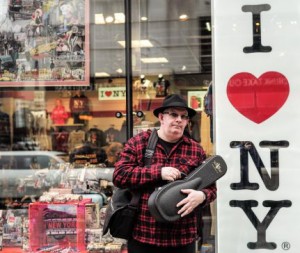 There’s an old saying “You have to kiss a lot of frogs to find a prince” I feel the same way about instruments. Over the years, I have bought a lot of electric and acoustic instruments and before purchasing, have played a great deal more. Prior to being totally seduced by the ukulele, I was (and still am but to a lesser extent) a guitar collector. I started out collecting electric instruments and really wanted to find an acoustic.
There’s an old saying “You have to kiss a lot of frogs to find a prince” I feel the same way about instruments. Over the years, I have bought a lot of electric and acoustic instruments and before purchasing, have played a great deal more. Prior to being totally seduced by the ukulele, I was (and still am but to a lesser extent) a guitar collector. I started out collecting electric instruments and really wanted to find an acoustic.
On numerous occasions, I set out with the intention to buy one. Once in Paris I must have played 20+ Taylor guitars at all price levels, but although they played fine, I didn’t love any of them. Its only when I was in Rudy’s Music in New York that I found the first acoustic I loved, a Santa Cruz small bodied acoustic that I still have today. When Mandolin Brothers existed in Staten Island NY, I again spent an afternoon playing over 30 instruments before picking up a Collings made from Brazilian Rosewood which sounded and played better than anything else in the store, including some Martin and McPherson guitars that cost thousands of dollars more.
 The first ukulele I bought was a pre-production Collings UC1 from Zeke at Matt Umanov Guitars in New York. I have always loved Collings instruments and never found one that didn’t sound or play brilliantly. I had no idea how to play this uke or even how to tune it, but it sounded brilliant. Another time in Heartman Guitars in Tokyo I again tried out 20+ ukuleles before settling on a Shimo Comet 3 tenor that was used on The Small Change Diaries first album. It was quite simply by far the best sounding and playing instrument in the store and since then I have commissioned and now possess a sister Comet with Dtar pickup that’s being used on the new album due for release in 2017.
The first ukulele I bought was a pre-production Collings UC1 from Zeke at Matt Umanov Guitars in New York. I have always loved Collings instruments and never found one that didn’t sound or play brilliantly. I had no idea how to play this uke or even how to tune it, but it sounded brilliant. Another time in Heartman Guitars in Tokyo I again tried out 20+ ukuleles before settling on a Shimo Comet 3 tenor that was used on The Small Change Diaries first album. It was quite simply by far the best sounding and playing instrument in the store and since then I have commissioned and now possess a sister Comet with Dtar pickup that’s being used on the new album due for release in 2017.
Two other instruments that blew me away were both introduced to me by Martin Simpson, a Stefan Sobell New World African Blackwood acoustic and a Sobell Mandola. Both are extraordinary. The New World inspired me to commission Rob Collins to build me a tenor ukulele which has become my essential live instrument with the band. The “keepers” in terms of instruments have some magical element that makes me want to sit and play them for hours and hours. Although some of these instruments are considered high end and come with a price to suit, price is not always the factor that makes for “a prince”. Sometimes an instrument can look fantastic, but for whatever reason doesn’t really have that level of seduction. I’m usually a fan of plain looking instruments but once in Ukulele Mania in Tokyo I surprised myself in buying a serious flash looking Peter Lieberman soprano ukulele. It just sounded fantastic and has been used on the next band album. This year I also finally bought a National Reso which was in the store. For the first time, I really got why folks like Phil Dolemen love these instruments. I just couldn’t put in down and brought it back to the UK.
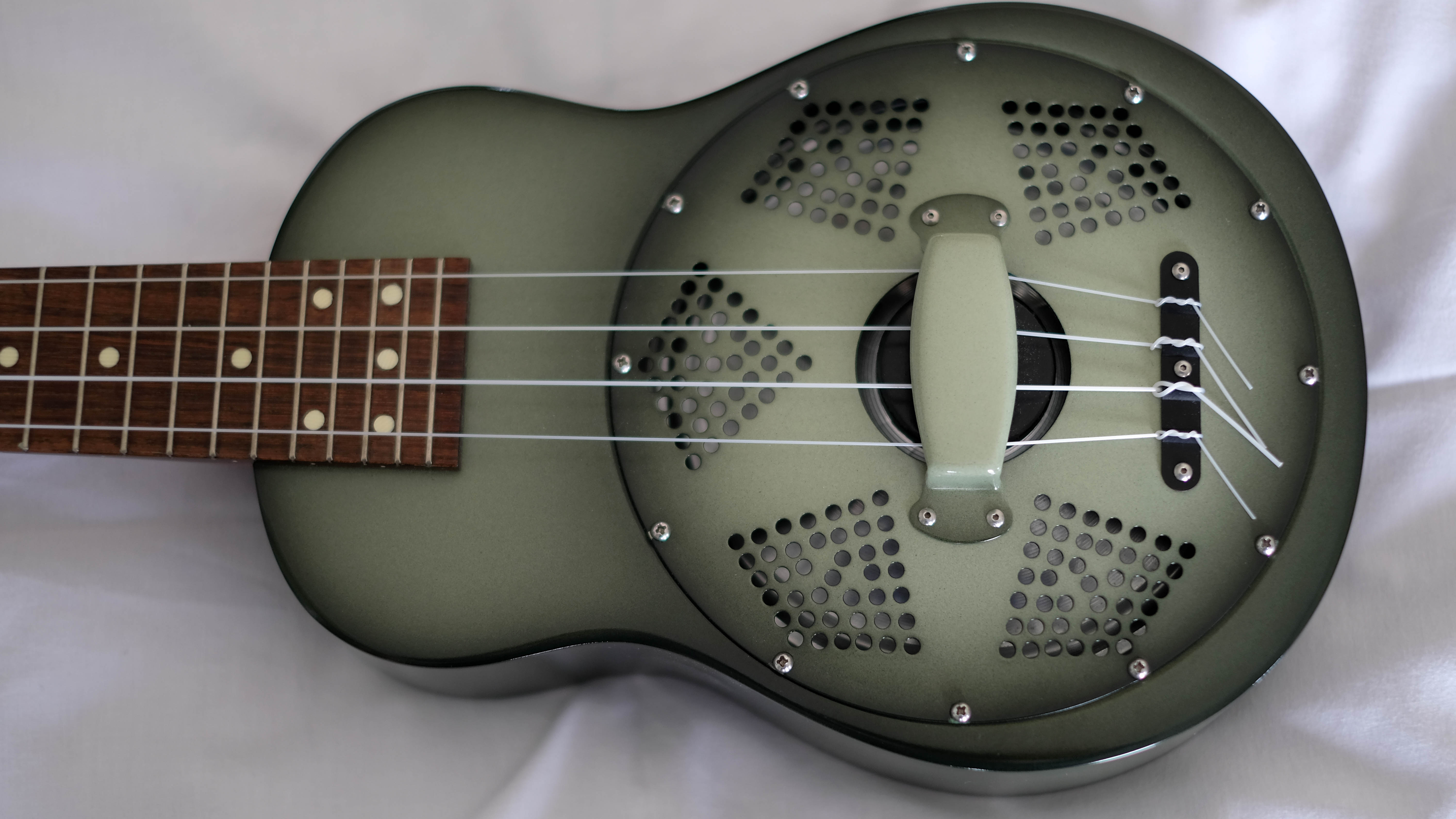
Such instruments form a special connection inspiring a wealth of sonic possibilities. It’s an absolute privilege and joy to own and play such instruments. In 2017 I’m going to add a Collings tenor guitar to the growing family.
I have no doubt that this will also inspire the creation of some new music. I never set out to be a collector, but I can’t think of a better use of my income and I can’t see this trend slowing down anytime soon…
Home studio recording in days gone by and a TV short…
Today I was working doing some home studio recording. Its been a while since I did this and I’m reminded that 2001 – 2004 in another life I did a great deal of this. Between 2001 and 2004 I recorded, mixed and mastered a series of spoken voice CDs which sold rather well. The main one “The Adventures of well being now” sold a few thousand and some of the ambient music from that track was used for an award winning movie short that was shown on C4. See below.
Technology has moved on a fair bit since then and in the last year I upgraded the studio to use an Audient 8 channel pre amp as well as the wonderful UAD plugins which have made a massive difference to final recordings. These days I mostly play and record acoustic music and have figured out how to get some really excellent sounds. The key is to use the best instruments and recording components.
For The Small Change Diaries I still use our “go to guy” for recording and mastering as he has the skills for what we need. However I’m thinking of doing a home side project in 2017 to see what might be possible when I’m working as both artist and producer. Certainly the sound quality I can get is really excellent and of course there are no shortage of ideas waiting to be recorded. I deliberately sat in on all the mixing and mastering for the Small Change Diaries CDs to educate myself into how to get a better sonic result. One thing I have learned from home studio recording is that doing this properly takes time. I would also never want to be a sound engineer for other artists, it would drive me totally crazy!
Where are all the great lyrics in modern songs?
I’m a big fan of really great lyrics that together with a great melody produce a memorable song. Here are some examples of some of my favorites, followed by lyrics from two best selling 2016 pop songs.
Yes I know I am cherry picking, but in my 100% biased opinion a lot of the lyrics in songs in recent years (not all artists of course) are really not that interesting and IMO pretty dull…
“Oh, God said to Abraham, “Kill me a son”
Abe said, “Man, you must be puttin’ me on”
God said, “No” Abe say, “What?”
God say, “You can do what you want, Abe, but
The next time you see me comin’, you better run”
Well, Abe said, “Where d’you want this killin’ done?”
God said, “Out on Highway 61”
Bob Dylan (Highway 61)
“Money’s just something you throw
Off the back of a train
Got a head full of lightning
A hat full of rain
And I know that I said
I’d never do it again
And I love you pretty baby but I always take the long way home”
Tom Waits (Long way home)
If I’m gonna go down, I’m gonna do it with style.
And you won’t see me surrender.
You won’t hear me confess. ’cause you’ve left me with nothing
But I’ve worked with less.
And I learn every room long enough to make it to the door.
And then I hear it click shut behind me.
And every key works differently.
And I forget every time
And the forgetting defines me. Yea that’s what defines me.”
Go across the tracks
Where the viaduct looms,
Like a bird of doom
As it shifts and cracks
Where secrets lie in the border fires,
in the humming wires
Hey man, you know
you’re never coming back
Past this square, past the bridge,
past the mills, past the stacks
On a gathering storm comes
a tall handsome man
In a dusty black coat with
a red right hand”
Here are two best selling songs from 2016
I don’t wanna be your fool
Pick me up whenever you want it
Throw me down when you are through
‘Cause I’ve learned more from what’s missing
It’s about me and not about you
I know I made some bad decisions
But my last one was you”
Heard he in love with some other chick
Yeah yeah, that hurt me, I’ll admit
Forget that boy, I’m over it
I hope she gettin’ better sex
Hope she ain’t fakin’ it like I did, babe
Took four long years to call it quits
Forget that boy, I’m over it”
